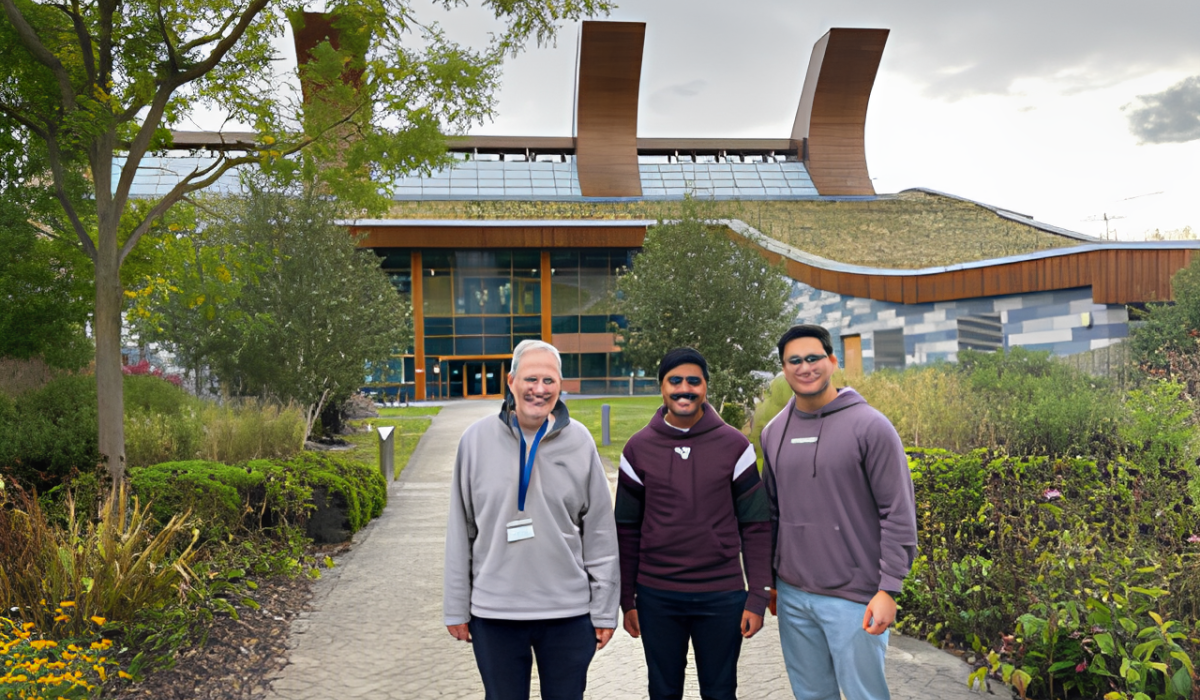This week, we speak with Viraj, a Natural Sciences student specializing in Chemistry, about his internship experience. He shares insights into how he secured the opportunity, the challenges and highlights of his work, and his advice for students currently seeking internships!
Hi Viraj! To start us off, can you tell me about how you got the internship?
I knew I wanted to gain some hands-on experience in Chemistry, so I started reaching out to people in my network. Since I’m from Nottingham, I looked into the University of Nottingham, which has a strong chemistry department and a well-regarded research programme. I was particularly interested in medicinal chemistry and drug design, so I contacted a professor in that field. Although he wasn’t offering internships at the time, he referred me to another professor specializing in organic chemistry. I reached out, explained my interests, and was fortunate to secure a position.
Can you tell me about your experience during the internship? What kind of work did you do?
Initially, I was hoping for some wet lab experience—working directly with chemicals and conducting experiments. However, the professor I was assigned to didn’t have that available. Instead, he introduced me to a PhD student working on a computational chemistry project that used machine learning to predict chemical reactions.
At the time, I had very little experience with coding, let alone machine learning. The only coding I had done was some basic statistics work during my first year. So, stepping into this field was a challenge. Fortunately, the PhD student had a similar academic background—he had also started in chemistry before transitioning to computational methods—so he understood the learning curve and helped guide me through the process.
During the first few weeks, I focused on understanding Python and the basics of machine learning models. I was given small tasks to complete, similar to problem sets, to build my skills. However, I was keen to contribute to research rather than just learning in isolation. I expressed this early on, so they assigned me a practical task: organizing a dataset of chemical reactions that would be used in the machine learning model.
As I worked with the data, I noticed discrepancies—certain reactions were predicted incorrectly by the model. At first, I assumed I had made a mistake, but after further investigation, I realized that the inconsistencies were likely due to errors in the original literature. My project then evolved into refining the machine learning model so that it could be used as a tool to detect potential errors in reported chemical reactions.
Essentially, I developed a data curation tool that would help chemists verify the reliability of literature sources before using them in experimental research. This was particularly exciting because I hadn’t anticipated making such a significant contribution when I first started the internship.
I also learned how to work with graph neural networks, which was the type of model used in the project. By the end of the internship, I not only developed a strong foundation in machine learning but also gained a broader appreciation for how computational techniques can complement traditional experimental chemistry.
What advice would you give to students currently looking for an internship?
My biggest piece of advice is to be open-minded about the opportunities you pursue. Initially, I was set on doing an organic chemistry-based internship, but I ended up working in machine learning—and I really enjoyed it. You might discover new interests and skills that you wouldn’t have considered otherwise.
Also, don’t hesitate to directly contact professors, even if they aren’t officially advertising positions. They may not have an opportunity themselves but could refer you to someone who does. Many students apply for the same large, competitive internship programs, but sometimes reaching out on your own can lead to great opportunities. I am really grateful to college as the QIAGEN studentship that I was awarded provided the funding for the internship and there are lots of studentships that may be of interest to students.
Finally, don’t worry too much about whether you already have all the necessary skills. When I started my internship, I had no experience with machine learning, but I was able to learn on the job. If you’re enthusiastic, proactive, and willing to put in the effort, you’ll pick up what you need along the way.
Thanks so much for sharing with us Viraj, and good luck for the rest of the year!
If you would like to read Viraj's paper, see the link here.




